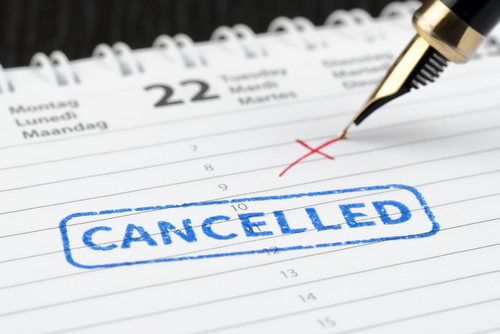If you have ever bought a ticket to an event such as a festival or a concert, which has then been cancelled or the business/organiser has gone under, you may have found yourself asking what you can do in order to get your money back. Wollens Trainee Solicitor Kennedy Lugg has written this guide to help.
Things to be considered when purchasing a ticket for an event:
- Who you are purchasing the ticket from
- The terms and conditions of the purchase
- The total cost of the tickets
- The method by which you are purchasing
- Insurance options available upon purchase
Buying direct from the organiser
If you have bought a ticket directly from an organiser and the event has been cancelled they will be liable to issue you a refund. If they do not, then you can proceed to issue a formal complaint with the company – however, they still do not have to issue you with a refund if their investigations conclude this.
If they do not provide you with a refund after your complaint, you do have the option to proceed via the small claims court in order to retrieve the sums due to you, however, there are other options that should be considered first as this is costly.
If you did wish to pursue a claim, you should obtain professional advice in connection with this as any terms and conditions of the ticket purchase itself and the overall proportionality of pursing a claim should be seriously considered.
If the business has gone into administration it is implied that they do not have the funds in which to provide you with the refund. You can complain to the company itself, however, it is more likely than not that a liquidator will be appointed for the company who will then have to pull together the companies’ debts and order them in priority.
Unfortunately, there could be a long wait in terms of receiving a refund or you may only receive part – it is all dependent on the assets that can be realised in order to pay the businesses already existing debts.
Buying from a Primary Seller
This could be from a trusted third-party primary website such as Ticketmaster.
If you purchased from a primary seller, you are to contact them direct and ask them for a refund. It is usual policy that upon a cancellation a refund is to be issued but this is dependent on each individual company and their terms and conditions.
Buying from a Secondary Seller
A secondary seller is better known as a re-sale site. i.e. a site that allows people that have already bought tickets to re-sell if they can no longer attend the event.
Section 90 of the Consumer Rights Act 2015 governs the re-selling of tickets and sets out the criteria that must be brought to the buyer’s attention before a purchase, this includes:
- Where the ticket is for and whether it is seated or standing;
- Information about any restrictions or limits of the use of the tickets; and
- The face value of the ticket.
If you do not feel as though the above has been advertised correctly, then you may have a claim against the ticket seller for misrepresentation. However, it should be noted that this is ascertained on a case by case basis and it is best to receive advice on this before trying to pursue any claim.
Unfortunately, if you do not fall into the above category and you have bought from a secondary seller, it is very unlikely that you will be able to secure refund. However, there are other options available which are explained below.
Terms and conditions
When purchasing from any website, whether this be direct from the organiser or a secondary seller, the terms and conditions upon purchase should be considered as it may stipulate that once the ticket has been purchased, a refund will not be issued.
This is usually made quite clear and there is often the option to purchase insurance for your tickets which will cover if the event gets cancelled, this is usually for a small fee and is worth considering. The event may not get cancelled, however if it does, you will have that added layer of protection.
Section 75 Consumer Credit Act 1974
If you made your purchase by credit card and it is over £100 but under £30,000, you may be able to make a claim via your bank under Section 75 of the Consumer Credit Act.
You can notify your bank and make a claim and they will investigate this for you – however, it should be noted that just because a claim is made does not mean a refund will be issued. This is at the discretion of your bank.
Chargeback
In the event that you purchased on a credit card and the value is under £100 or you made the purchase on a debit card or another payment service such as Paypal, you have the option to use Chargeback.
You cannot contact your bank about chargeback unless you have notified the seller directly first and made a complaint – your bank will not consider a chargeback claim unless you have done this. Again, even if this is used, a refund is not guaranteed, this is at the discretion of your bank.

Financial Ombudsman Service
If you decide to make a complaint to the ticket seller direct or a make claim via or bank and the decision is that no refund will be issued to you, then as a last resort, it is open to you to make a formal complaint to the financial ombudsman service.
They will then investigate your claim for you – again, it should be noted that this does not mean they will approve your case, they may also find that a refund is not due. This is at the discretion of the financial ombudsman after they have considered all of the relevant information.
How we can help ?
Our dispute resolution team deal with all types of disputes and can advise you if necessary.
Kennedy Lugg – Trainee Solicitor
email Kennedy : [email protected]
Contact Wollens today if you need advice on this topic :
Call us :
South Devon 01803 213521
Exeter 01392 274006
North Devon 01271 342268



